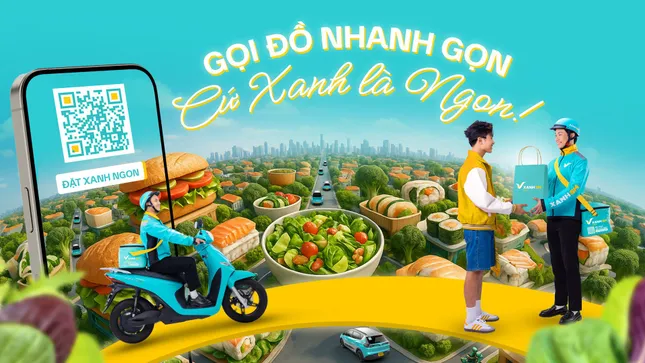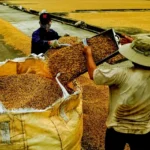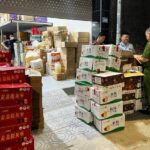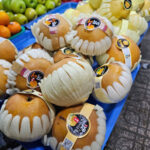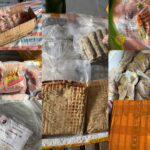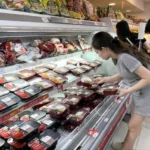GSM, a renowned company, has proudly introduced its new food delivery service, Xanh SM Ngon, in Hanoi, boasting a network of over 2,000 participating restaurants. This service will undergo a pilot phase before expanding nationwide.
According to GSM, partner restaurants of Xanh SM Ngon are carefully selected to meet stringent food safety standards, holding valid certifications from relevant authorities. These restaurants ensure uniform standards in food preparation, packaging, and presentation.
Leveraging GSM’s technological platform and operational expertise from its all-electric mobility ecosystem, Xanh SM Ngon introduces a “No Order Batching” feature. This innovation reduces delivery time and maintains optimal food temperatures, ensuring a delightful dining experience for customers.
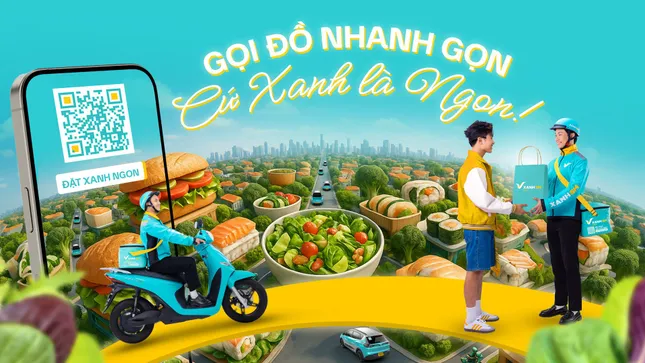
In terms of pricing, Xanh SM Ngon offers attractive discounts for orders placed through its app. Orders valued at 50,000 VND and above may be co-funded with subsidies ranging from 20,000 to 90,000 VND, depending on specific promotions.
Additionally, customers can enjoy time-based, category-based, or customer group-based discounts of 20% to 50% on their orders. Certain promotions for e-wallet or linked bank card payments may offer additional rebates of 15,000 to 30,000 VND. Delivery fee support ranges from 5,000 to 10,000 VND, and all promotional information is transparently displayed within the app.
“With our all-electric service platform, Xanh SM Ngon not only connects diners with restaurants but also creates a greener and more community-friendly food delivery journey,” said Mr. Nguyen Van Thanh, GSM’s Global CEO. “We prioritize quality, speed, and safety to elevate the everyday consumption experience, starting with something as simple and familiar as a meal.”
Xanh SM Ngon is the latest addition to GSM’s diverse ecosystem, which includes mobility services such as Xanh SM Car, Xanh SM Premium, Xanh SM Bike, and Xanh SM Express. According to research firm Mordor Intelligence’s Q1 2025 data, GSM leads the four-wheel ride-hailing market share in Vietnam.
GSM has successfully expanded its operations to four countries outside of Vietnam and aims to further extend its reach within the Southeast Asian region.
The Online Grocery Conundrum
“In an interview with Tien Phong newspaper regarding the complex issue of unsafe and low-quality food, Mr. Nguyen Quang Huy, Deputy Head of the Ho Chi Minh City Market Management Department, stated that the range of violating products is diverse. It spans from fresh produce and ready-to-eat meals to sugar, bird’s nest, and dietary supplements.”
“Huge Stash of Illicit Sweets Uncovered in Hanoi Raid”
The authorities seized 62 boxes of chocolate and red apples from a business premises in La Phu, Hoai Duc district, due to a lack of invoices proving their origin.
The QR Code Conundrum for Agricultural Products
“QR codes have the potential to be a game-changer in supply chain traceability and consumer protection. However, the effectiveness of these matrix barcodes is often undermined by their mere presence as a token gesture. It’s time to unlock the true power of QR codes and transform them from mere symbols into dynamic tools that deliver on their promise of transparency and security.”
Pondering the Pork Conundrum: Hot or Cold?
Recent social media posts have caused a stir, with claims and images suggesting that pork supplied by C.P. Vietnam may be contaminated. The Ministry of Agriculture and Environment has referred the case to the police for investigation. This incident raises a critical question: How is the quality of pork, a staple food for many, being monitored and regulated?
























